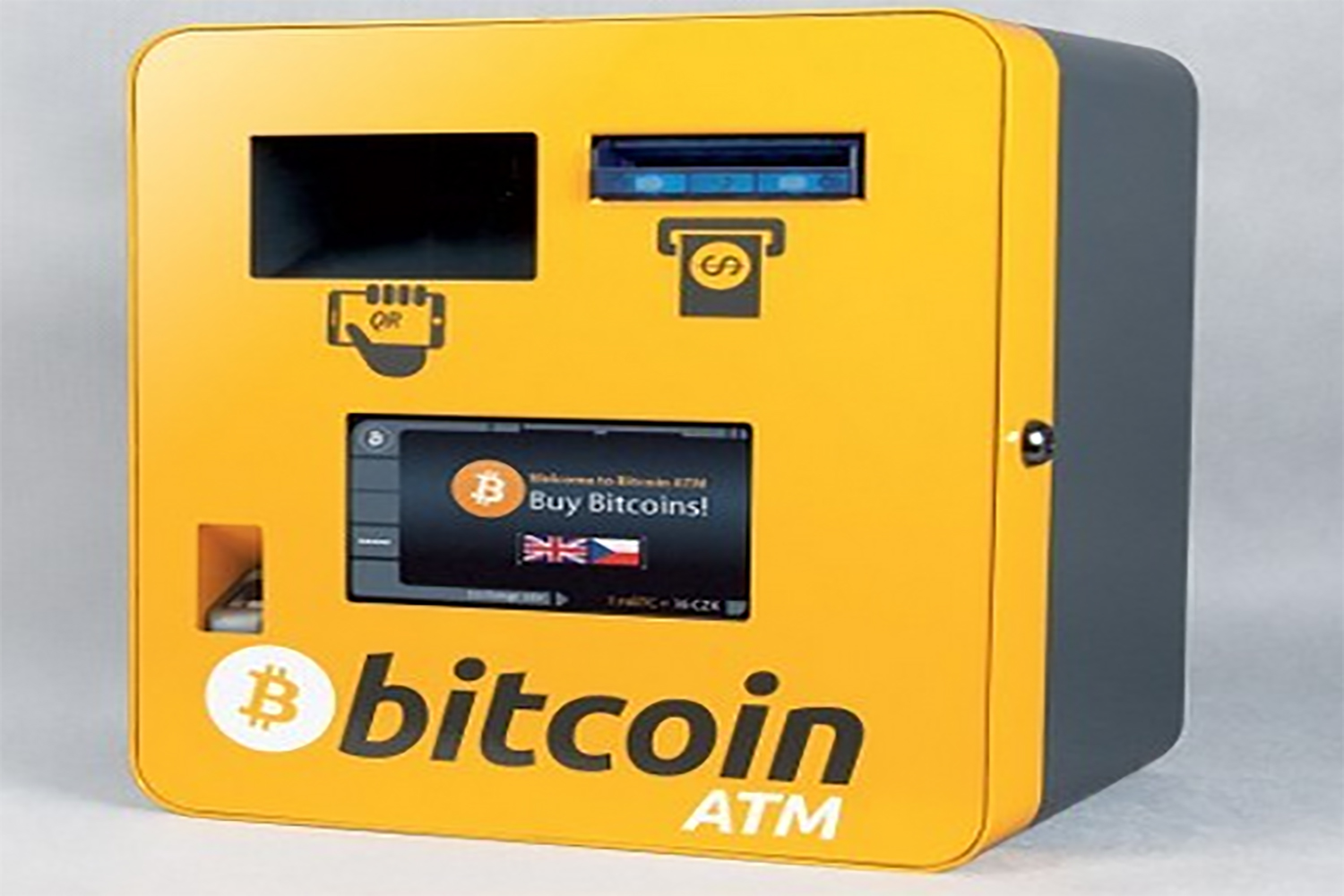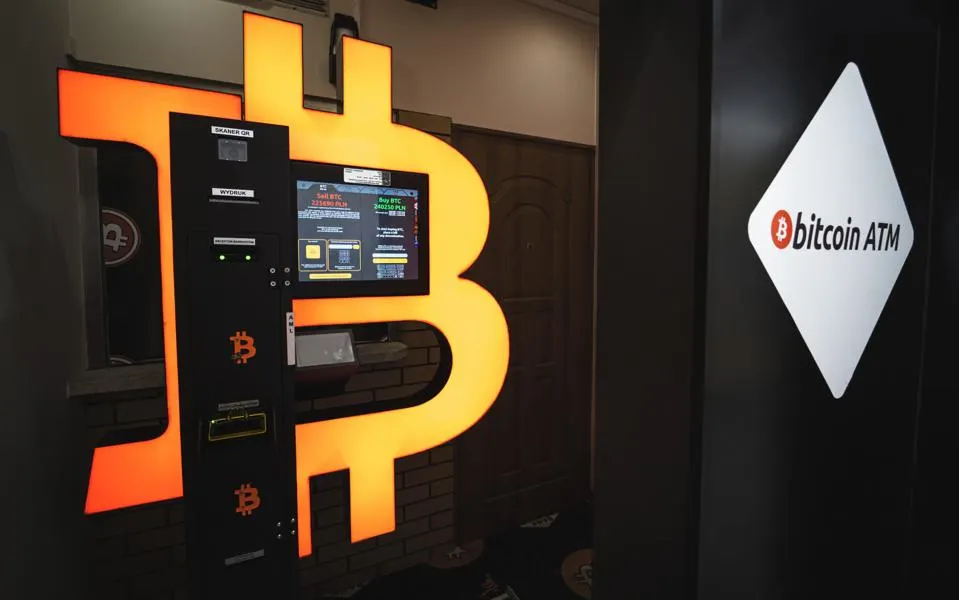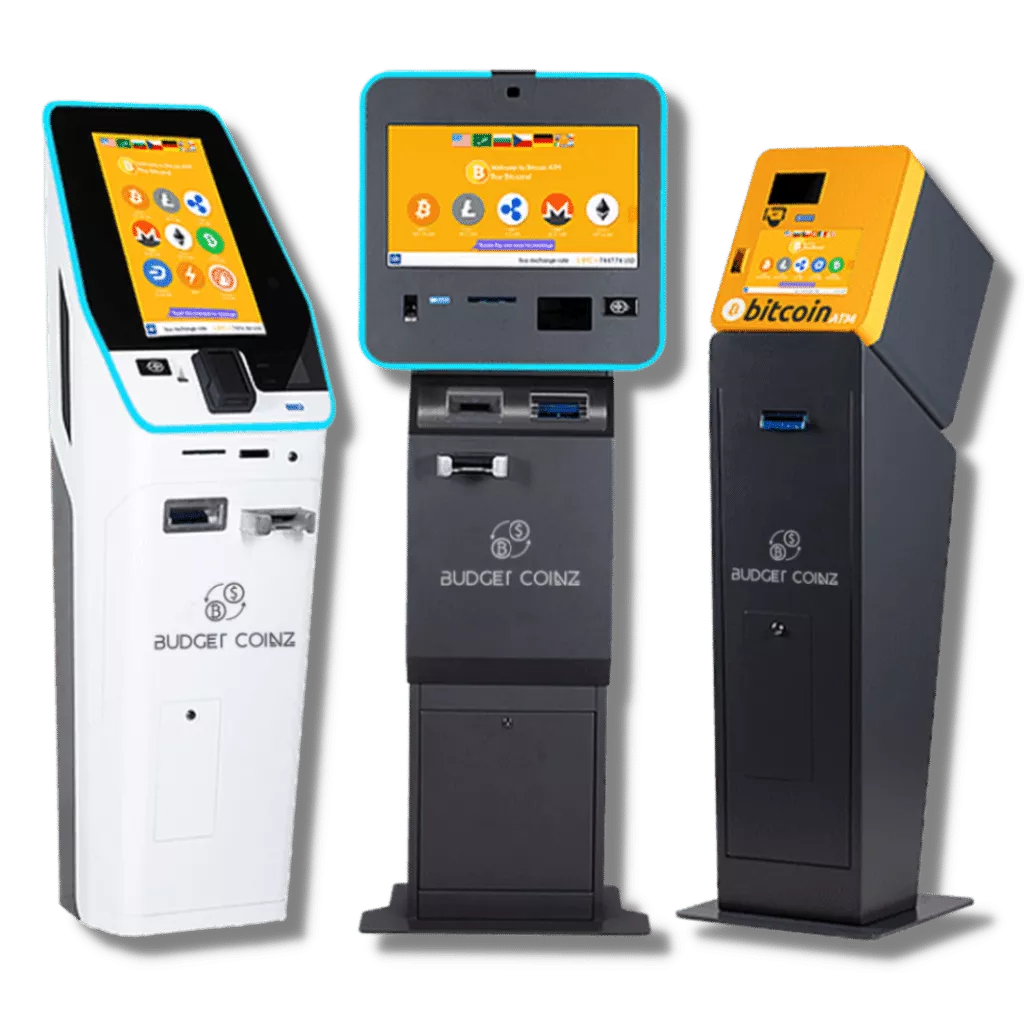Bitcoin ATMs - Revolutionizing Access To Cryptocurrency
Discover Bitcoin ATMs: Buy, sell, and access cryptocurrency easily. Learn benefits, usage, and more.
Author:Stefano MclaughlinReviewer:Camilo WoodFeb 13, 20244.2K Shares56.5K Views

Bitcoin ATMs, also known as BTMs or Bitcoin kiosks, are physical machines that allow individuals to buy or sell Bitcoin and other cryptocurrencies using cash or debit/credit cards.
Since their introduction in 2013, Bitcoin ATMs have played a crucial role in expanding access to cryptocurrency, enabling users to easily acquire or liquidate digital assets without relying on online exchanges.
In this discussion, we'll delve into the workings of Bitcoin ATMs, their benefits, challenges, and their impact on the broader cryptocurrency ecosystem.
What Is A Bitcoin ATM?
An Automated Teller Machine (ATM) for Bitcoin is a device that accepts cash, credit, or debit cards for the purchase and occasionally sale of Bitcoin and other cryptocurrencies. It functions much like a conventional ATM, but instead of accepting deposits or withdrawals, users can buy Bitcoin and transfer it to a Bitcoin wallet, like the Bitcoin.com Wallet app, or, in the case of some Bitcoin ATMs, sell Bitcoin to get cash.
A simple and localized option to buy Bitcoin in person is through Bitcoin ATMs, which are linked to the Internet and enable users to connect directly with a Bitcoin exchange. Bitcoin ATM locations can be found in retail establishments, shops, pubs, restaurants, malls, and airports.
How Does A Bitcoin ATM Work?
Bitcoin ATMs function similarly to traditional ATMs but with added functionality to facilitate cryptocurrency transactions. The typical process of using a Bitcoin ATM involves the following steps:
- User Verification -Depending on the operator and regulatory requirements, users may need to verify their identity by providing identification documents or completing a Know Your Customer (KYC) process.
- Wallet Setup -Users need a cryptocurrency wallet to send and receive Bitcoin. Some Bitcoin ATMs allow users to create a new wallet directly at the machine, while others require users to have a pre-existing wallet.
- Transaction Initiation -Users select the option to buy or sell Bitcoin on the ATM's interface and enter the amount they wish to transact.
- Cash Input -For buying Bitcoin, users insert cash into the ATM equivalent to the desired amount of Bitcoin they wish to purchase. For selling Bitcoin, users generate a QR code representing their wallet address and scan it at the machine.
- Confirmation and Completion -The ATM processes the transaction, verifies the funds, and confirms the transaction on the blockchain. Users receive a receipt or confirmation on the ATM screen once the transaction is completed.
Bitcoin ATM Fees
Recently, there has been criticism directed toward Bitcoin ATMs for their exorbitant transaction costs. According to Truthout, a nonprofit, Bitcoin Depot ATMs may impose exchange costs of up to 20 percent and fail to reveal the whole cost to users.
The majority of Bitcoin ATM transaction fees range from 5 to 15% of the total sum. On the other hand, it's simple to locate cryptocurrency exchangers online that charge less than 1% for transactions.
Certain Bitcoin ATM operators may impose a variable miner fee in addition to transaction costs. Bitcoin miners are compensated with this fee in exchange for adding verified Bitcoin transactions to the blockchain. Make sure you investigate any possible costs before using a Bitcoin ATM and seek for the lowest ones.
Benefits Of Bitcoin ATMs
Bitcoin ATMs offer several advantages that contribute to their growing popularity:
- Accessibility -Bitcoin ATMs provide a convenient and accessible way for individuals to buy or sell Bitcoin in-person, without the need for a bank account or access to online exchanges.
- Privacy -Bitcoin ATMs offer varying levels of privacy, allowing users to transact without linking their identity to their cryptocurrency holdings. Some ATMs require minimal verification, while others may require more extensive KYC procedures.
- Speed -Transactions conducted at Bitcoin ATMs are typically processed instantly or within a few minutes, allowing users to quickly acquire or liquidate Bitcoin without waiting for bank transfers or online exchange transactions.
- Global Reach -Bitcoin ATMs are deployed in various locations worldwide, including shopping malls, convenience stores, airports, and financial districts, providing access to cryptocurrency in both urban and rural areas.
- Educational Opportunities- Bitcoin ATMs serve as educational tools, introducing newcomers to the world of cryptocurrency and blockchain technology by offering a hands-on experience with buying and selling Bitcoin.
Challenges And Considerations
Despite their benefits, Bitcoin ATMs also face several challenges and considerations:
- Regulatory Compliance -Bitcoin ATMs are subject to regulatory oversight, and operators must comply with Know Your Customer (KYC) and Anti-Money Laundering (AML) regulations. Compliance requirements vary by jurisdiction and can impact the user experience and accessibility of Bitcoin ATMs.
- Transaction Fees -Bitcoin ATMs often charge higher transaction fees compared to online exchanges, which can deter users, especially for smaller transactions. Users should carefully consider the fees associated with using Bitcoin ATMs before conducting transactions.
- Security Risks -Bitcoin ATMs are susceptible to theft, vandalism, and hacking attempts. Users should exercise caution when using Bitcoin ATMs and ensure they are located in safe and well-monitored areas.
- Volatility -Cryptocurrency prices can be highly volatile, leading to price discrepancies between Bitcoin ATMs and online exchanges. Users should be aware of potential price fluctuations and consider their investment goals before using Bitcoin ATMs.
- Limited Functionality -While Bitcoin ATMs primarily facilitate Bitcoin transactions, some machines also support other cryptocurrencies such as Ethereum, Litecoin, or Bitcoin Cash. However, the availability of alternative cryptocurrencies may vary depending on the ATM operator and location.
Impact On The Cryptocurrency Ecosystem
Bitcoin ATMs play a crucial role in expanding access to cryptocurrency and promoting adoption by providing an easy-to-use gateway for buying and selling Bitcoin. They serve as physical manifestations of the digital currency revolution, bridging the gap between traditional finance and the emerging world of decentralized finance.
Furthermore, Bitcoin ATMs contribute to the decentralization of cryptocurrency ownership by empowering individuals to control their finances and access digital assets directly, without relying on intermediaries or centralized exchanges.
Bitcoin ATMs - FAQs
Where Can I Find Bitcoin ATMs?
Bitcoin ATMs are located in various public places such as shopping malls, convenience stores, airports, and financial districts. Users can use online directories or apps to locate nearby Bitcoin ATMs.
How Much Does Bitcoin ATM Charge Per $100?
If you were to inquire about the cost per $100 when transacting with a Bitcoin terminal, the usual Bitcoin ATM price would be between $8 and $20; if you're lucky, you might even find rates as low as $4.
Are Bitcoin ATMs Safe To Use?
Bitcoin ATMs are generally safe to use, but users should exercise caution and ensure they are located in well-monitored areas. It's essential to follow security best practices, such as verifying the machine's legitimacy and protecting personal information.
What Are The Benefits Of Using Bitcoin ATMs?
Bitcoin ATMs offer accessibility, privacy, speed, global reach, and educational opportunities. They provide a convenient way for individuals to buy or sell Bitcoin in-person without the need for a bank account or access to online exchanges.
How Do Bitcoin ATMs Verify Users' Identities?
Bitcoin ATMs may require users to verify their identity through various means, such as providing identification documents or completing a Know Your Customer (KYC) process. The level of verification depends on the operator and regulatory requirements.
Is Bitcoin ATM Safe?
Hackers are unable to access your money without your digital wallet key. Although malware and hacking are always a possibility in the digital world, Bitcoin ATM designers are certain that there's no reason to worry excessively. These devices are made to operate safely.
Are There Any Regulatory Considerations When Using Bitcoin ATMs?
Bitcoin ATMs are subject to regulatory oversight and may require operators to comply with Know Your Customer (KYC) and Anti-Money Laundering (AML) regulations. Users should be aware of regulatory requirements and ensure compliance when using Bitcoin ATMs.
Is Bitcoin ATM Legal?
Operators of bitcoin ATMs are generally required by federal law to register as money services businesses with the Financial Crimes Enforcement Network, or FinCEN, of the U.S. Department of Treasury. To stop money laundering and other illicit activities, the organization gathers and examines financial data.
Conclusion
Bitcoin ATMs represent a significant innovation in the cryptocurrency space, offering accessibility, convenience, and privacy to users seeking to engage with Bitcoin and other digital assets. Despite facing regulatory, security, and usability challenges, Bitcoin ATMs continue to proliferate globally, driving the mainstream adoption of cryptocurrency and reshaping the future of finance.

Stefano Mclaughlin
Author

Camilo Wood
Reviewer
Latest Articles
Popular Articles

